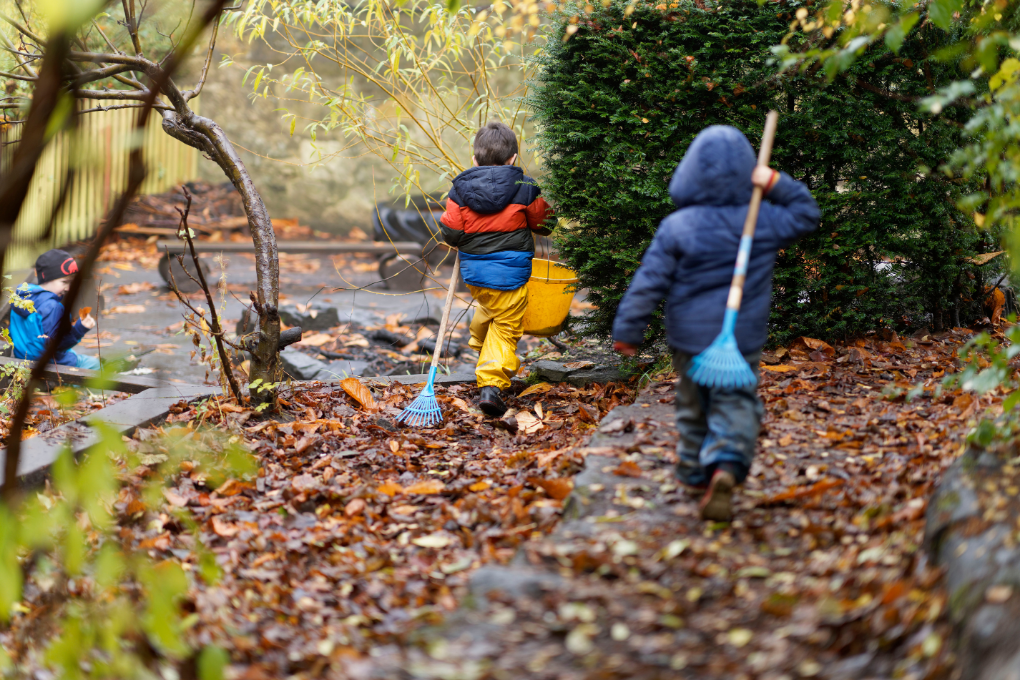Working with the Will

The educational aspects of Steiner Waldorf philosophy spring from an understanding of three seven year cycles of development: from birth to seven; from seven to fourteen; and from fourteen to twenty-one. At each stage, the education is designed to work with the unfolding abilities and changing needs of the child. These stages connect with the development of the human qualities of thinking, feeling and willing. In the first phase, the active or will aspect predominates, in the second, the affective or feeling aspect is dominant, and in the third, the cognitive or thinking aspect comes to the fore.
We are a community of ‘doers’ and our work is a combination of practical and artistic activity. We garden, clean, cook and we bake our own bread together which we share and eat at meal times. Children love to help and, through this they develop a wide range of motor skills, such as dexterity and hand-eye coordination. The presence of a working adult creates an atmosphere that helps the children to become independently active. To see an adult working with their hands, doing something where skill, concentration and perseverance are all demanded, is a wonderful example to the ever-watchful child. All that the adults do, but also how they do it, how they handle their tools and materials, even their gestures and body language, are all registered and internalised by the child.
